Research Results
For a Rapidly Aging Society
Ensuring Prevention-Focused Medical CareFY2022 update
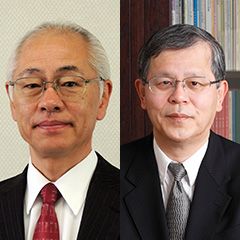
- Kudo Toshihiko(Project Leader/Maruman Computer Service Corp.)
- Nakaji Shigeyuki(Research Leader/Specially-appointed Professor, Hirosaki University)
- Center of Innovation (COI) Program
- “Sustaining national health in an aging society”(2013-2021)
Winner of the first Japan Open Innovation Prize, the “Prime Minister’s Award” in 2019
Confronted with a rapidly aging society, the reduction of medical care expenses and the promotion of health for the elderly have become matters of societal importance for Japan. Heretofore, medical care has been centered around the treatment of disease. The Center of Innovation (COI) program is host to a “’healthy power’ creation hub for the achievement of true societal innovation,” led by project leader Kudo Toshihiko and specially-appointed professor Nakaji Shigeyuki as the leader of research. Here, some 80 universities, research institutions, businesses, and regional governments, including those involved in medical care, participate in firm collaboration between academia, industry, government and citizens, to drive open innovation forward, with the goal of securing medical care that is focused on the prevention of disease.
More specifically, based on health-related big data analysis acquired through cohort research* of Aomori Prefecture residents, early indicators of disease were calculated from individuals’ health and diagnostic information. The goal is to achieve a societal system in which the elderly can securely participate in economic activities and enjoy their lives by developing an “early indicator discovery algorithm,” and “early indicator discovery application” to analyze individual risk levels, in addition to a “health improvement application” and “cognitive disability support system” to communicate early indicator results and conduct countermeasures and guidance.
In March of 2019, their activities up to that point were acknowledged with the Cabinet-hosted 1st Japan Open Innovation Prize’s highest award, the “Prime Minister’s Award.” This recognized the COI Hub as an organization engaged in what is, from an open innovation perspective, a remarkable new endeavor that crosses organizational boundaries, combining know-how, technology and management resources.
Furthermore, in November of the same year, they were also awarded the “7th Platinum Vision Award,” when these efforts were judged to be the most superior of all those made in furtherance of the “platinum society” vision—by resolving regional challenges through the creation of new innovation-driven industries and idea-rich policies.
In September of 2020, they were awarded the "Minister of Education, Culture, Sports, Science and Technology Prize" of the Innovation Net Award.
In May of 2021, their activity was described on the report of the Economic and Social Commission for Asia and the Pacific (ESCAP) , United Nation, as the excellent case for customizing the use of technology for active aging, they are taking global note and high evaluation.
* Gathering a large number of people who are not afflicted by a disease that is the subject of the research, and observing them over a long period of time, investigating whether the presence of a given factor relates to the occurrence or prevention of disease. Of the epidemiological methods, this is a non-intrusive, observational research method based on surveying and observing the research subjects’ living habits.
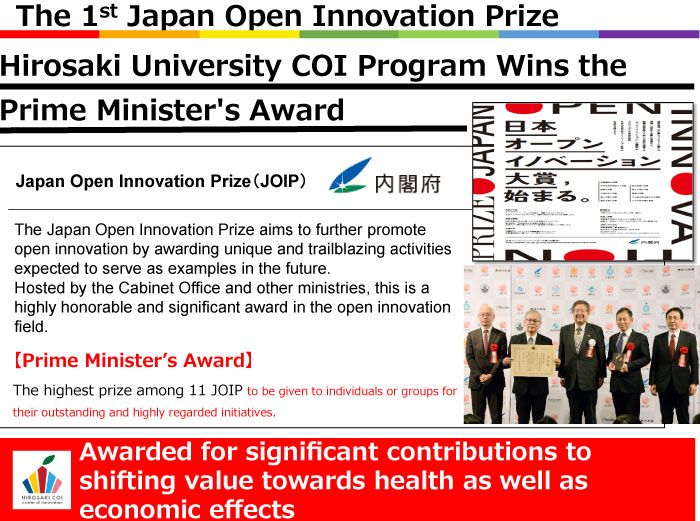
Fig. 1 In March of 2019, in recognition of their activities to that point, they were awarded the Cabinet-hosted 1st Japan Open Innovation Prize’s highest award, the “Prime Minister’s Award.”
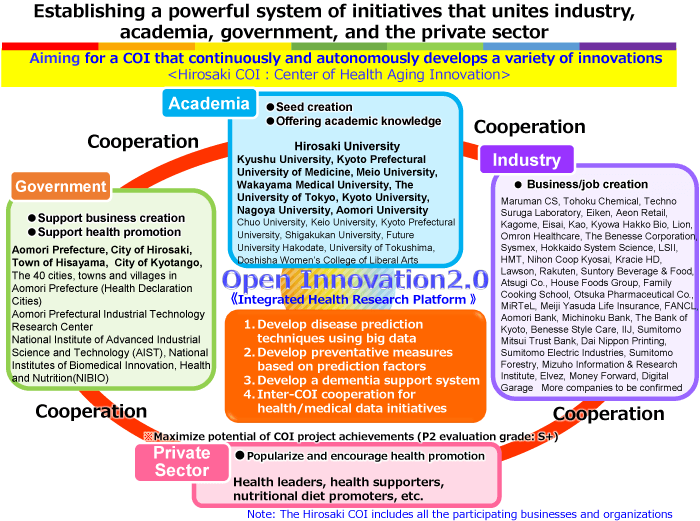
Fig. 2 Under the auspices of the COI Hub, some 80 universities, research institutions, businesses, and regional governments participate in a strong collaboration between industry, academia and government, to drive open innovation forward. Their goal: to establish disease prevention-focused medical care.
Development of early disease indicators and prediction methods based on big data concerning health and living habits
Through the “Iwaki Health Promotion Program,” which has been ongoing in the Iwaki district of Hirosaki City, Aomori Prefecture since 2005, robust health information on some 2,000 – 3,000 items ranging from intestinal bacteria and visceral fat to saliva has been accumulated and tracked over time from over 20,000 people. In the town of Hisayama, Fukuoka Prefecture with a population of approximately 8,400, an epidemiological survey of the area’s residents has been ongoing for over 50 years, collecting precise information regarding strokes, malignant tumors, cognitive impairment, hypertension, diabetes, etc.
At the COI Hub, Hirosaki University’s health promotion project, Kyushu University Faculty of Medicine, Kyoto Prefectural University of Medicine, Meio University, Wakayama Prefectural School of Medicine, and other institutions collaborated to develop an “early indicator discovery algorithm” and “early indicator discovery application” based on health and living habit big data. It is noteworthy that many research institutions, not just Hirosaki University and Kyushu University, collaborated to further increase the quantity and variety of data, which made it possible to develop more precise disease early indicators, prediction methods, and prevention methods.
Furthermore, preeminent experts in the fields of bio-informatics, biological statistics and clinical statistics participated in the big data analysis. The system was underpinned by collaboration, centered around Hirosaki University, with the Kyoto University Faculty of Medicine, Tokyo University Faculty of Medicine Research Lab, Tokyo University Faculty of Medicine, and Nagoya University Faculty of Medicine.
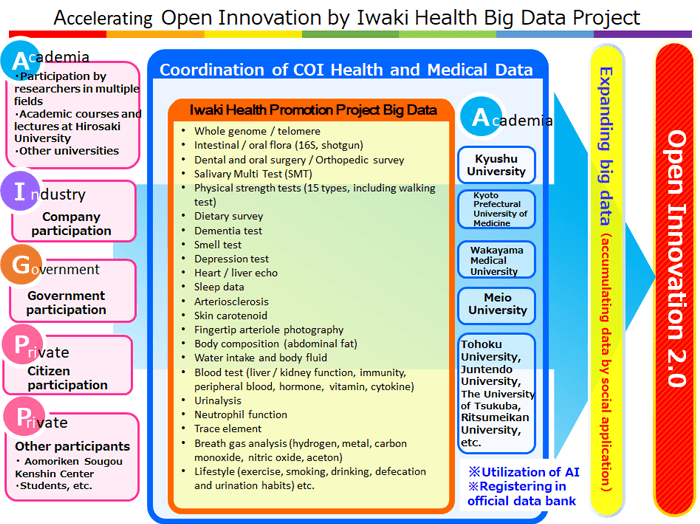
Fig. 3 Collected by the “Iwaki Health Promotion Project” which has been ongoing in the Iwaki District of Hirosaki City, Aomori Prefecture since 2005. Coordinated sharing of accumulated big data on health and living habits will be leveraged to develop early indicators of disease and disease prediction methods.
Additionally, the development of a support system for mild cognitive impairment and lifestyle-related diseases.
Furthermore, a “health story (health improvement application)” was developed, to both communicate early indicator results and provide countermeasures and guidance. Targeted at people with disease risk factors, the system was designed to notify people of their early indicator results at the individual level, to realize prevention through the improvement of living habits. Furthermore, development of an algorithm for predicting mild cognitive impairment and lifestyle-related diseases at the pre-symptomatic stage was advanced. Going forward, the goal is to enable innovative anti-aging methods such as the introduction of prevention through exercise therapy and oral care for those who are found to have mild cognitive impairment or lifestyle-related diseases.
In addition, Hirosaki University, in collaboration with the other institutions participating in the COI Hub, has implemented a trial version of an “QOL medical exam” that performs same-day examination, diagnosis, and education. Going forward, the goal is to develop and demonstrate a mass market version for both domestic and overseas rollout.
Simultaneously, the development of a “cognitive impairment support system” is also being advanced. Aimed at making banking easier for the elderly, it is driving the education of bank employees, the development of bank branch systems, the writing of guidelines for new financial services contracts with elderly customers, development of financial services for new asset management and economic activity support for the elderly, and further still, the development of a senior life planning method that is helpful in early-stage cognitive impairment support, and the development of applications and equipment to support decision-making.
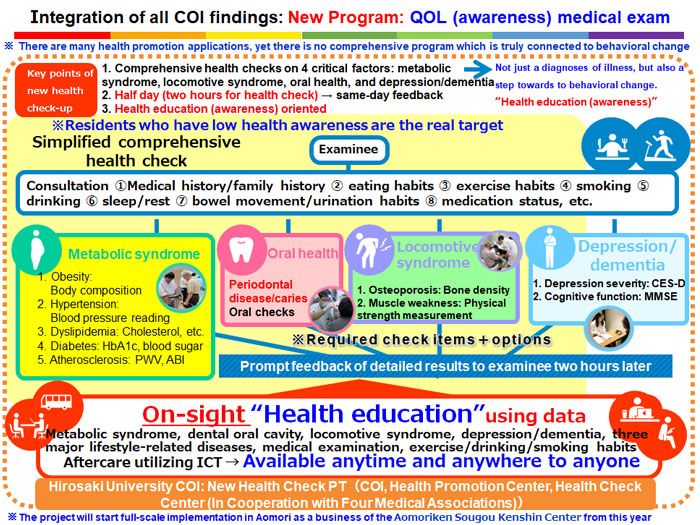
Fig 4 The “QOL medical exam” that conducts same-day examination, diagnosis and education. Going forward, the goal is to develop and demonstrate a mass-market version for both domestic and overseas rollout.
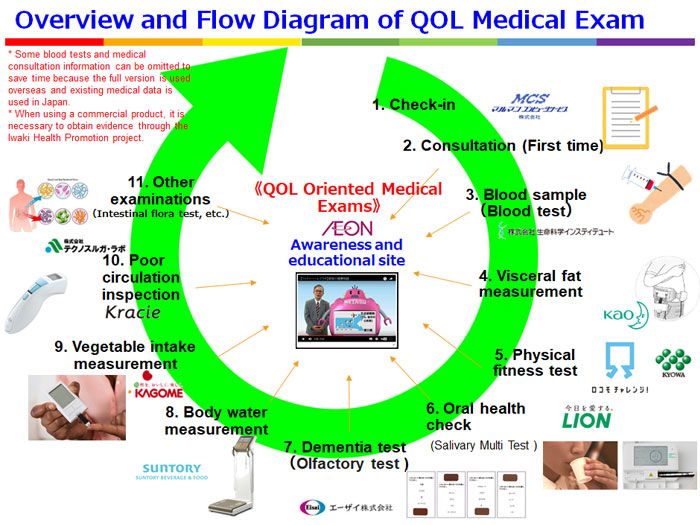
Fig 5 A flowchart overview of the “QOL medical exam”
Establishing a “COI Health and Medicine Data Collaboration Organization” to collaborate with other COI Hubs
In 2017, Hirosaki University established the “Innovation Center for Health Promotion,” an interdisciplinary organization that integrates health-promoting functions. In April 2018, that center newly established a research hub facility under its name, marking the completion of a place for institutions participating in COI to create employment and new industry in the name of regional revitalization.
One cross initiative theme which includes other COI hubs is “promoting inter-hub links for the utilization of health and medicine information.” In FY 2015, the “COI Health and Medical Data Collaboration Driving Organization” (hereinafter, “COI Data Collaboration Organization”) was established to drive these activities, with its office in Hirosaki University. At present, the COI Data Collaboration Organization is working toward setting up the base structure of an open innovation platform to enable the mutual sharing, and verification and comparison, of the broad spectrum of health and medicine-related data collected from wearable devices and the cohort research studies conducted by the respective COI hubs. They are working toward the sharing of data and its mutual utilization. By doing so, the reliability of research results from all COI hubs will be improved, which ties in to the policy of social implementation.
Accordingly, and in light of the growing problem of lifestyle-related diseases in developed countries like the U.S. and Europe, and developing countries like those of Southeast Asia, this project and its future results will be deployed not just in Japan, but internationally, enabling a real contribution to the SDGs.
- Life Science
- Research Results
- Japanese
